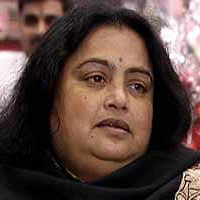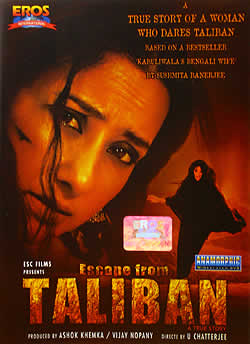To all interfaith dating couples, we highly recommend all of you to watch this movie that is based on a true story.
It is important to know that you are not marrying to a person but, in many respects, marrying to a community. You need to figure it out if you are compatible with their expectations. Best it would be, if possible, to go live in his/her parents home for a week without your lover being there. A fully informed decision will bring real joy in the married life for ever, even that is an interfaith marriage.
Another important point all girls should notice in this movie is about a big dependence after sleeping with a guy. Here, the guy lied again and again and abused her but still she could not leave him.
View the movie here: https://youtu.be/VFeIXef1Rmg
Original true story:
Source: https://en.m.wikipedia.org/wiki/Sushmita_Banerjee
 Sushmita Banerjee, also known as Sushmita Bandhopadhyay and Sayeda Kamala (1963-2013), was a writer and activist from India. Her works include the memoir Kabuliwalar Bangali Bou (A Kabuliwala’s Bengali Wife; 1997) based on her experience of marrying an Afghan and her time in Afghanistan during Taliban rule. The story was used as the basis for the Bollywood film Escape from Taliban.
Sushmita Banerjee, also known as Sushmita Bandhopadhyay and Sayeda Kamala (1963-2013), was a writer and activist from India. Her works include the memoir Kabuliwalar Bangali Bou (A Kabuliwala’s Bengali Wife; 1997) based on her experience of marrying an Afghan and her time in Afghanistan during Taliban rule. The story was used as the basis for the Bollywood film Escape from Taliban.
Life:
Sushmita Banerjee was born in Calcutta West Bengal (present-day Kolkata, India) to a middle-class Bengali Brahmin family. Her father worked in the civil defence department and her mother, a homemaker. She was the only sister to her three brothers. She first met her future husband Janbaz Khan, an Afghan businessman, at a theatre rehearsal in Calcutta. She married him on 2 July 1988. The marriage took place secretly in Kolkata, as she feared her parents would object to the inter-religious marriage. When her parents tried to get them divorced, she fled to Afghanistan with Khan. She discovered that her husband already had a first wife, Gulguti, when she found them in bed together. Although shocked, she continued to live in Khan’s ancestral house in Patiya village, with her three brothers-in-law, their wives, and with Gulguti and Gulguti’s children. Later, Khan returned to Kolkata to continue his business, but Banerjee could not return. Sayeda, a trained nurse in gynaecology, opened a clinic to help the women of the village.
With the burgeoning Taliban power in Afghanistan, Banerjee witnessed fundamentalist changes occurring in the country. In a 2003 interview, she said that the plight of women in particular got worse. Women were banned from talking with men other than family members, they were not allowed outside home. Schools, colleges, and hospitals were shut down. Taliban men discovered her clinic and beat her severely in May 1995.
Banerjee made two abortive attempts to flee Afghanistan. She was caught and kept in house arrest in the village. A fatwa was issued against her and she was scheduled to die on 22 July 1995. With the help of the village headman, she finally fled from the village, in the process killing three Taliban men with an AK-47 rifle. She reached Kabul, and took a flight back to Kolkata on 12 August 1995.
She lived in India until 2013, and published several books. After returning to Afghanistan, she worked as a health worker in Paktika Province in southeastern Afghanistan, and began filming the lives of local women.
Death:
According to Afghan police, suspected Taliban terrorists forced entry into her house in Paktika on the night of 4 September 2013. They bound her husband and absconded with her. Her corpse was found early the next day beside a madrasa in the outskirts of the provincial capital Sharana. The body had 20 bullet hole marks.
Other Movies:
Not Without My Daughter
Khuda Kay Liye
Interfaith Marriages in Bollywood
More information: Hindu-Muslim Marriage, Sharia, Muslim-Hindu marriages, Hindu-Muslim lovers’ experiences, Koran on Hindus? Hindu girl-Muslim boy, Marriage & Divorce laws.
Return to Home, Blogs, How to Share? Facebook, Youtube, Twitter, Book, Media.


